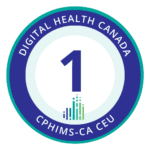Webinar Wednesday – Real-world effectiveness of self-led iCBT versus standard CBT: Cohort Study using Ontario’s linked health-admin data

Webinar Wednesday – Real-world effectiveness of self-led internet-based cognitive behavioural therapy (iCBT) versus standard CBT: a cohort study using Ontario’s linked health-administrative data
Background
Growing demands for mental health services have resulted in increased interest in virtual interventions delivered online and via mobile applications. Internet-based Cognitive Behavioural Therapy (iCBT) is an evidence-based intervention where users progress on their own time through online modules to modify maladaptive thinking and behaviour patterns and develop coping skills. While the efficacy of iCBT for anxiety and depression has been demonstrated in randomized controlled trials, we leveraged linked, health-administrative data to examine its real-world effectiveness, compared to standard CBT.
Methods
In this retrospective cohort study, we compared individuals receiving iCBT (self-led, online modules with minimal, asynchronous therapist support) via a pilot program to those receiving standard CBT (scheduled, one-one-one, therapist-led sessions) in Ontario, Canada between Jan 2020 and Aug 2021. We utilized a Difference-in-Differences analysis to assess pre-post change in depression (PHQ-9) and anxiety (GAD-7) symptoms and examined mental health-related service utilization (emergency department visits, hospitalizations, and outpatient visits to psychiatrists and primary care providers) using Logistic and Negative Binomial regressions for binary and count outcomes, respectively.
Results
Among N=167 individuals enrolled in iCBT and N=300 controls receiving standard CBT, we found that treatment modality was a significant predictor of pre-post symptom change (p<0.01 for DID coefficients), with standard CBT clients experiencing a greater reduction in depression and anxiety symptoms (a 4-point reduction in PHQ-9 and 3.6-point reduction in GAD-7), compared to iCBT clients (2.3-point reduction in PHQ-9 and 0.35-point increase in GAD-7), though sensitivity analyses restricting to treatment completers somewhat attenuated this finding. While both groups experienced a reduction in MH-related service use, iCBT clients were more likely to continue visiting both acute care (ORadj=2.92, 95% CI 1.29-6.64) and outpatient physicians (RRadj=1.32, 95% CI 1.03-1.69) 1-year post-treatment, adjusted for age, comorbidities, and baseline symptom severity.
Conclusions
In routine care, self-led iCBT appears to be less effective than standard CBT in terms of anxiety and depression symptoms and in terms of mental health-related service utilization. While iCBT remains a promising approach for leveraging technological innovation to meet access needs, the benefits of regular therapist contact cannot be overlooked.



